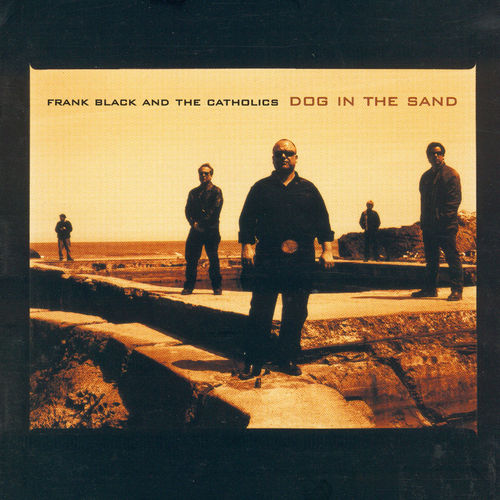The relationship between musician and listener is not always easy. Occasionally the misunderstandings are inevitable and sometimes compromises need to be made. However with the appropriate patience and open hearts and minds, you can reach a level of mutual understanding that you had not previously considered to be possible. There are times when your appreciation of an album does not start with spontaneous fireworks, however, sometimes it is those albums that become the most enduring.
It took me three years to fall for Dog in the Sand. From when my then romantic interest recommended it to me in 2004, it was an uphill-struggle. There had been times when it dazzled me with it’s charms, but other times it sat there obliquely, challenging me to criticise it and find fault, until things clicked into place for me 2007.
Like a lot of Pixies fans, I’d subscribed to the wisdom that Charles Thompson lost something intangible the moment he split up the illustrious band that had made his name. While I appreciate that any musician feels the need to explore the boundaries of their art, work with other musicians and generally keep the creative juices flowing, I was just one of those people that didn’t embrace Frank Black’s solo work, as much as that of The Pixies. Then again maybe he’d read the writing on the wall long before the rest of us knew it was there, and thought it best to split The Pixies before they became a cruel parody of themselves.
I guess that by the time Dog In The Sand was released, most Pixies fans had given up on hoping for a Pixies reformation. It was totally unexpected then that this album was home to some of the best material that Frank Black / Black Francis / Charles Thompson had written since Doolittle, indeed some of the songs on Dog in the Sand are better than material on either of the last two Pxies albums. Chief among these is “Blast Off”, a song which seems to pay tribute in equal parts to David Bowie, Iggy Pop and Lou Reed. In addition to this epic first track, “Robert Onion”, “Bullet” and “Hermaphroditos” are as strong as anything on Bossanova or Trompe le monde. It wasn’t until 2007 that “If it Takes All Night” caught my attention with it’s barreling piano and its repeated title and it has to be said, that my appreciation of that one song lifted my opinion and my understanding of the whole album. Now it made sense, now I got it, now our relationship could flourish.
Dog in the Sand is not a perfect album by any means, but it’s often someone’s flaws that eventually causes us to fall for them. If you allow Dog in the Sand to reveal itself over time, it’s an album that becomes increasingly warm and familiar, and eventually you begin to realise that the relationship between listener and album has become something rather special.














No Comment